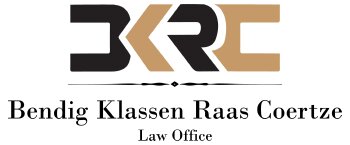Best Arrests & Searches Lawyers in Prince Albert
Share your needs with us, get contacted by law firms.
Free. Takes 2 min.
List of the best lawyers in Prince Albert, Canada
About Arrests & Searches Law in Prince Albert, Canada
Arrests and searches in Prince Albert, Canada, are governed by both federal and provincial laws, ensuring that they adhere to established legal standards and protect the rights of individuals. These procedures are primarily conducted by law enforcement agencies, such as the Royal Canadian Mounted Police (RCMP), under the umbrella of the Canadian Charter of Rights and Freedoms. The laws are designed to balance the needs of public safety with the individual rights to freedom and privacy.
Why You May Need a Lawyer
Engaging with the legal system can be daunting, particularly in cases involving arrests and searches. You may need a lawyer if you are the subject of an arrest warrant, believe a search of your property was conducted unlawfully, or if you need guidance on understanding your rights when being stopped by the police. Legal professionals can provide valuable advice to ensure that your rights are protected throughout any legal proceedings.
Local Laws Overview
In Prince Albert, the laws concerning arrests and searches are based on national guidelines, as laid down by the Canadian Criminal Code and the Charter of Rights and Freedoms. Key considerations include: - The necessity of probable cause for a legal arrest. - Requirement for a search warrant in many situations unless immediate action is justified, such as preventing the destruction of evidence. - The right for individuals to be informed of their rights upon arrest, including the right to retain counsel without delay. Understanding these regulations is vital for anyone who might be involved in a legal situation regarding arrests and searches.
Frequently Asked Questions
What should I do if I'm arrested in Prince Albert?
It’s essential to stay calm, exercise your right to remain silent, and request to speak to a lawyer immediately. Avoid providing any statements or admissions until you have legal representation.
Can the police search my home without a warrant?
Generally, police need a warrant to search your home. However, there are exceptions, such as exigent circumstances where immediate action is necessary.
What are my rights if my vehicle is searched?
The police may conduct a search of your vehicle if they have probable cause to believe it contains evidence of a crime. You have the right to ask the reason for the search and to contact a lawyer.
How can I contest an unlawful search?
To challenge an unlawful search, it is advisable to consult with a lawyer who can help file a motion to suppress any evidence obtained unlawfully, potentially impacting the overall case against you.
What should I do if I witness an arrest?
You can legally observe from a safe distance but should not interfere or obstruct the process. It’s advisable to note details like officer badge numbers and patrol car numbers.
Can my phone be searched during an arrest?
Police typically require a warrant to search your phone unless there are pressing reasons to conduct a search immediately. You should assert your right to privacy in such instances.
What is the role of a duty counsel in this context?
Duty counsel are lawyers provided by the government to offer free legal advice to those who have been arrested or are detained, ensuring that everyone has access to legal support.
How likely is it for the police to use excessive force during an arrest?
Most officers adhere to strict protocols, but incidents of excessive force, though rare, can occur. If you believe excessive force was used, document your experience and speak to a lawyer.
What constitutes "probable cause" for a search?
Probable cause is a reasonable basis for believing that a crime may have been committed, which is required for obtaining a search warrant and conducting a lawful search.
Can arrests be made on private property?
Arrests on private property typically require a warrant unless there are emergency circumstances justifying immediate police action.
Additional Resources
Consider reaching out to organizations like the Prince Albert Police Service, Legal Aid Saskatchewan, or the Canadian Civil Liberties Association for information and assistance related to arrests and searches. These bodies provide valuable resources and guidance.
Next Steps
If you require legal assistance, consider contacting a lawyer specializing in criminal law to discuss your situation. If cost is a barrier, explore options like Legal Aid services or duty counsel programs. Having a knowledgeable advocate can significantly impact the outcome of your legal proceedings and ensure that your rights are thoroughly protected.
Lawzana helps you find the best lawyers and law firms in Prince Albert through a curated and pre-screened list of qualified legal professionals. Our platform offers rankings and detailed profiles of attorneys and law firms, allowing you to compare based on practice areas, including Arrests & Searches, experience, and client feedback.
Each profile includes a description of the firm's areas of practice, client reviews, team members and partners, year of establishment, spoken languages, office locations, contact information, social media presence, and any published articles or resources. Most firms on our platform speak English and are experienced in both local and international legal matters.
Get a quote from top-rated law firms in Prince Albert, Canada — quickly, securely, and without unnecessary hassle.
Disclaimer:
The information provided on this page is for general informational purposes only and does not constitute legal advice. While we strive to ensure the accuracy and relevance of the content, legal information may change over time, and interpretations of the law can vary. You should always consult with a qualified legal professional for advice specific to your situation.
We disclaim all liability for actions taken or not taken based on the content of this page. If you believe any information is incorrect or outdated, please contact us, and we will review and update it where appropriate.








